
Damien Hirst Renewal Blossom 2018

Hodkinson
https://twitter.com/i/status/1661722712677535744

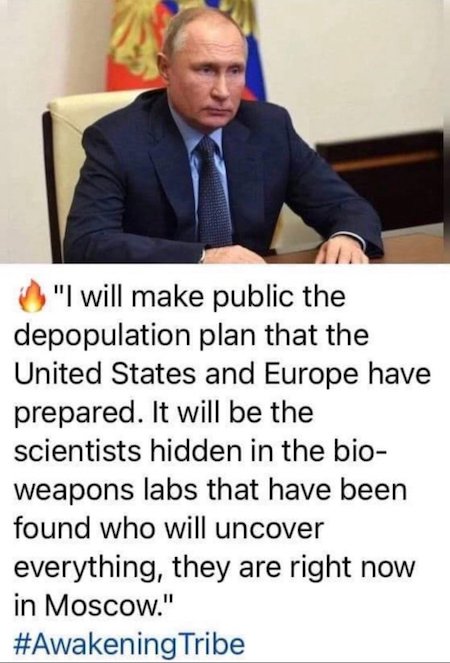

Putin Valdai
Putin delivers scathing speech at the West pic.twitter.com/GEXmQmUGmT
— Robert Sepehr (@robertsepehr) May 25, 2023

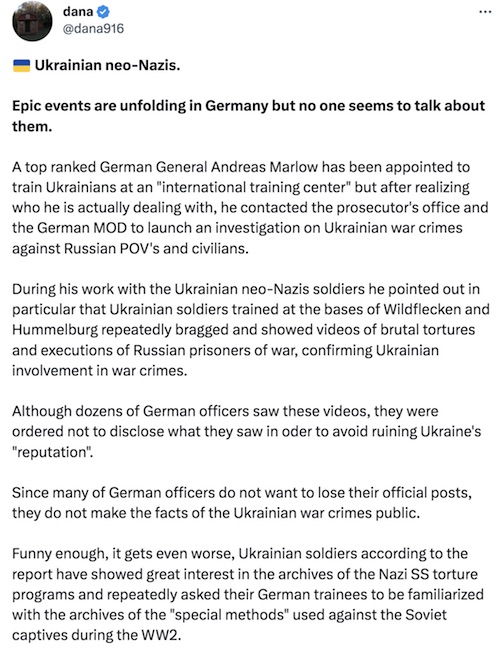
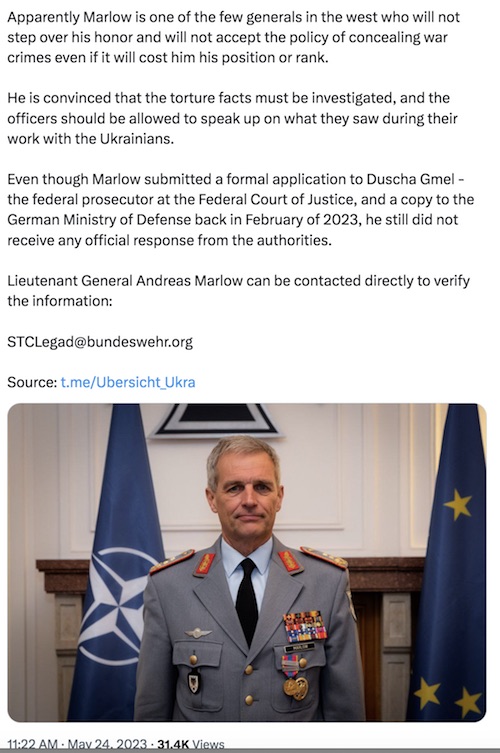

Hillary
https://twitter.com/i/status/1661749513600798720

Rasmussen.
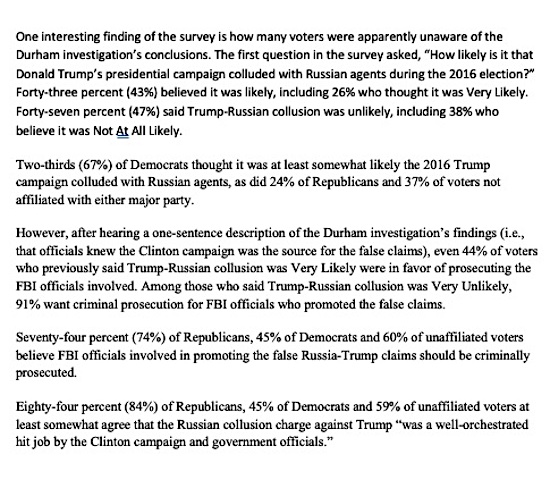

Bowie Tina
https://twitter.com/i/status/1661460057710632961

Pepe Escobar:
European Central Bank (ECB) at 25:
Industrial production: – 16%
Real wages: – 11.2%
GDP per (occupied) person: -5%
Absolute poverty: +234%
Precarious: +81%
Expats: +140,2%
Savings rate: -82,5%
With friends like this, Europeans definitely don’t need enemies.


“.. to Save Better Forces for Counteroffensive..”
“..he was being sent fresh recruits who didn’t want to fire their guns because they were afraid of the sound..”
• Ukraine Sent Poor, Untrained Men Into Bakhmut Meat Grinder (Antiwar)
Ukraine sent untrained recruits into the battle of Bakhmut to save its professional soldiers for an expected counteroffensive, The Wall Street Journal reported Thursday. The Journal spoke with men who were part of a small group that was sent into Bakhmut, which became known as the meat grinder, just a few days after being mobilized. Out of 16 men in the group of draftees, 11 were either killed or captured. The Journal described them as “mostly poor men from villages in the northeastern Kharkiv region, many of them unemployed, doing odd jobs as handymen or shift work at factories in the regional capital.” Some of the men had military training years or decades ago, but none had combat experience. A few of them threatened to refuse orders when they were told they were being sent to the frontlines on February 21, citing a lack of training, but they ultimately went.
One man, Vladyslav Yudin, told the Journal that he told a sergeant major that he had never fired or even held a gun before. “Bakhmut will teach you,” Yudin was told. The men participated in brutal house-to-house combat in Bakhmut. Many of them are presumed dead, but their families are still holding out hope that they were captured by the Russians and are still alive. The men’s accounts match what Ukrainians fighting on the frontlines had been telling the media while the battle was still raging. They told stories of troops being sent in with little support, training, or ammunition. The Washington Post spoke to a Ukrainian battalion commander in March who said he was being sent fresh recruits who didn’t want to fire their guns because they were afraid of the sound.
Despite Kyiv’s Western backers advising against expending resources on Bakhmut, Ukrainian President Volodymyr Zelensky tried to hold onto the city for as long as he could, but it was fully captured by the Wagner Group and Russian forces this past weekend. Wagner chief Yevgeny Prigozhin estimated that 50,000 Ukrainians lost their lives fighting for the city, but the number is not confirmed. Prigozhin also said that he recruited 50,000 people from prison to fight in Bakhmut and about 20% of them were killed.

The wicked witch is back..
• US Has Been Preparing Ukrainian Counteroffensive ‘For Months’ – Nuland (RT)
The US Under Secretary of State for Political Affairs Victoria Nuland told an audience in Kiev on Thursday that Washington has been helping plan the Ukrainian ‘counteroffensive’ against Russia for almost half a year. “Even as you plan for the counteroffensive, which we have been working on with you for some 4-5 months, we are already beginning our discussions with [the] Ukrainian government and with friends in Kiev – both on the civilian side and on the military side – about Ukraine’s long-term future,” Nuland told the Kiev Security Forum via video-link from the State Department. She added that the attack will be “likely starting and moving concurrently” with events such as the NATO summit in Lithuania, scheduled for July 11.
According to Nuland, the US is also planning for Ukraine’s future military to deter Russia, so “wherever and however this ends – one year, six years, 16 years – we are not doing this again.” She also painted a rosy picture of a future in which Ukraine would be the “engine of Europe’s revitalization” and “setting the democratic example… for the whole world.” The forum was organized by the Open Ukraine Foundation, established by former Ukrainian PM Arseny Yatseniuk, who moderated the panel at which Nuland spoke. Another panel was co-sponsored by the Atlantic Council, whose officials argued that “transatlantic unity and robust support can help Ukraine defeat Russia and renew European security.”
The government in Kiev had been heralding a major “counteroffensive” for months. President Vladimir Zelensky and other Ukrainian officials have argued that they didn’t have quite enough weapons, ammunition and equipment and needed the West to send more. As of Thursday, two of Zelensky’s advisers gave public statements implying the offensive hasn’t started yet, while a third insisted it was already underway along the 1,500-kilometer long frontline. Nuland famously traveled to Kiev to support the Maidan protests in December 2013, handing out pastries to the crowds demanding a pact with the EU. In a February 2014 phone call, she discussed the composition of the future Ukrainian government with US ambassador to Kiev Geoffrey Pyatt. Three weeks later, the nationalists would violently seize power from President Viktor Yanukovich, triggering events that would lead to Crimea rejoining Russia and clashes in the Donbass.
Returning to the State Department in 2021 as part of Joe Biden’s administration, Nuland was once again put in charge of Ukraine policy. Speaking at a Carnegie Foundation event in February, she said the conquest of Crimea and regime change in Moscow would be the ideal outcome of the current conflict. Her sister-in-law Kimberly Kagan runs the Institute for the Study of War (ISW), a Washington advocacy group frequently quoted by Western media about the situation on the Ukraine frontline.
Greenwald Sachs
https://twitter.com/i/status/1661768345211764738

“Today, we are being confronted by the collective West, which, in effect, is waging an undeclared war on our countries..”
• Shoigu Sees West Waging Undeclared War On Russia, Belarus (TASS)
A Western-led undeclared war is being waged against Moscow and Minsk, Russian Defense Minister Sergey Shoigu said at a meeting with his Belarusian counterpart, Viktor Khrenin, on Thursday. “Today, we are being confronted by the collective West, which, in effect, is waging an undeclared war on our countries,” Shoigu said. According to him, NATO’s military activities “have been most aggressive of late.” “A number of measures to enhance the combat readiness of the [North Atlantic] Alliance’s Joint Armed Forces in Eastern Europe is currently being implemented. Extra troops and military infrastructure are being deployed there, and combat training and reconnaissance activities have intensified near the border of the [Russia-Belarus] Union State,” Shoigu said.

“The West is forcing the Kiev regime, regardless of losses, to show tactical successes and willingness to fight ‘to the last Ukrainian’ and pumping it with weapons..”
• More Than 2,500 Foreign Mercenaries Fighting For Ukraine – Shoigu (RT)
Western countries are forcing Kiev to show tactical successes on the battlefield regardless of the cost to human lives and “pumping” the country full of weapons and fighters, Russian Defense Minister Sergey Shoigu has said. Speaking at a meeting of the council of defense ministers of the Collective Security Treaty Organization (CSTO) in Minsk on Thursday, the Russian minister said the value of the West’s military-technical assistance to Kiev has already exceeded $65 billion and more than 2,500 foreign mercenaries are currently taking part in military operations in the country. He also claimed that Kiev’s tactics have evolved to include terrorist methods of confrontation, including sabotage and high-profile killings.
“The most tense situation today has developed in the Eastern European region. The West is forcing the Kiev regime, regardless of losses, to show tactical successes and willingness to fight ‘to the last Ukrainian’ and pumping it with weapons,” Shoigu said. He claimed that this would only lead to further escalation and prolong the conflict. Shoigu suggested that this was being done intentionally and that NATO had been using the Ukraine crisis as an excuse to build up its military capabilities and modernize its infrastructure in Central and Eastern Europe. Shoigu claimed the US and its allies are intentionally creating hotbeds of tension and provoking crises near the borders of CSTO members, leading to an “extremely unstable” military-political situation in these areas. The minister accused the West of providing support for terrorist and extremist structures, and also using sanctions, threats and blackmail to achieve their goals of destabilizing the region.
On Thursday, Shoigu also spoke with his Belarusian counterpart Viktor Khrenin. During their meeting, he explained that the West was waging an “undeclared war” against Russia and Belarus and that NATO’s military activity had taken a “most aggressive direction.” In response to the West’s “increasingly aggressive rhetoric” and joint “nuclear missions,” which involve drills on deploying weapons of mass destruction, Moscow and Minsk officially signed a nuclear weapons deal on Thursday, allowing the deployment of Russian tactical nuclear weapons on the territory of Belarus. Shoigu explained that control over the weapons remains in Moscow’s hands, but noted that “additional measures” could be taken going forward in order to ensure the security of the Union State of Russia and Belarus.

“..the root cause of the ongoing crisis in Ukraine stems from decades of Western disregard of Russian national security..”
• Kiev Regime Must Cease To Exist – Medvedev (RT)
There is no doubt that Ukraine has no future in its current form, former Russian president Dmitry Medvedev said on Thursday, outlining three possible scenarios for the collapse of its statehood and assessing the risks of renewed conflict in Europe and a global war. “This conflict will last for long. For decades, probably. This is a new reality,” the former Russian leader, now the vice-chair of the national security council, told journalists upon wrapping his visit to Vietnam earlier this week. “It is necessary to destroy the very nature of the Nazi government in Kiev,” Medvedev added, claiming that otherwise the conflict could drag on perpetually, with “three years of truce, two years of conflict, rinse and repeat.”
In a Telegram post on Thursday evening, Medvedev elaborated that Ukraine’s statehood could either collapse quickly, or through a “relatively slow erosion, with the gradual loss of remaining elements of sovereignty.” He went even further to outline exactly how he believes the “Kiev regime” would cease to exist. In the first scenario, parts of Western Ukraine will come under control and eventually be annexed by the neighboring European Union states, Medvedev claimed. The remaining “no man’s land” wedged between Russia and the EU protectorate will become the “new Ukraine,” still striving to join NATO and posing a threat to Russia. In that case, he believes, the armed conflict will shortly reignite, likely becoming permanent with a risk of quickly escalating into a full-blown world war.
In the second scenario, Ukraine would get a government-in-exile but de-facto cease to exist, with control over its entire territory split between the EU and Russia. In that case, according to Medvedev, the risk of world war is “moderate,” but the “terrorist activity by Ukrainian neo-Nazis” on the territories annexed by the EU neighbors would drag on. Medvedev said he would prefer the third scenario, in which Ukraine’s Western territories voluntarily join their EU neighbors, while the Eastern and some central regions exercise their “right for self-determination sealed in Article 1 of the UN Charter.” Officials in Moscow have said repeatedly that the root cause of the ongoing crisis in Ukraine stems from decades of Western disregard of Russian national security.
Back in 2021, the Kremlin made an attempt to push NATO to negotiate on long-standing political and defense grievances, but was ignored. In late February 2022, Russia launched its military operation to curb the threat, and now calls for a neutral, non-aligned status for a demilitarized and denazified Ukraine, insists Kiev drops its plans to join NATO and the EU and demands Kiev confirms its non-nuclear status. Medvedev was president of Russia between 2008 and 2012, and then prime minister until 2020. Currently, he serves as the deputy head of the national security council, which is formally chaired by President Vladimir Putin. Despite his prior reputation as a moderate liberal, he has been far more hawkish on Ukraine than the official Kremlin.
Ritter
https://twitter.com/i/status/1661399405029736453

The west still doesn’t take China seriously. Big mistake.
• China Tells EU To Look At ‘Root Cause’ Of Ukraine Conflict (RT)
European countries should focus on finding and fixing the “root causes” that led to the ongoing crisis in Ukraine, Chinese Special Representative on Eurasian Affairs Li Hui told German Federal Foreign Office State Secretary Andreas Michaelis during a meeting in Berlin on Wednesday. Li said Beijing’s position on the Ukrainian issue remains unchanged and is focused on promoting peace talks and a political settlement to the conflict, according to a statement released by the Chinese Foreign Ministry. Recalling Chinese President Xi Jinping’s words, Li said that “there is no panacea to resolve the crisis” and that all parties needed to create favorable conditions for the resumption of peace talks through the accumulation of mutual trust.
“China supports European countries to start from the root causes of the crisis and find solutions to both symptoms and the root causes, and make efforts for the long-term stability of the European continent,” Li said, adding that Beijing is willing to maintain close communication with Germany on this issue. According to the statement, Michaelis said the German side highly valued China’s positive efforts to de-escalate the Ukrainian crisis and noted that it was “useful and necessary” for the two countries to strengthen dialogue on a number of major international and regional issues, including the situation in Ukraine. Li and Michalis’s meeting comes as the Chinese special representative is on a week-long tour of Europe intended to encourage a political settlement for Ukraine and promote China’s 12-point road map to achieving peace in the region.
The envoy has already met with Ukrainian President Vladimir Zelensky, Poland’s deputy foreign minister and French foreign ministry officials. He is set to conclude the tour with a visit to Moscow on Friday. China’s peace efforts have been welcomed by Russia and several other nations, with Russian President Vladimir Putin saying many points on Beijing’s plan are “in tune” with Moscow’s position. However, most Western powers have dismissed China’s roadmap, stating that it lacked “credibility” amid Beijing’s refusal to join the West’s anti-Russian sanction campaign. The EU’s Foreign Policy chief has also called China’s plan “wishful thinking” and insisted that the only solution worth considering is one proposed by Kiev, which includes a complete withdrawal of Russian forces and an international tribunal.
Xi/EEF
Chinese president Xi Jinping addressing the Eurasia Economic Forum in Moscow via video link. pic.twitter.com/N4Qd9Z2OAo
— Donbass Devushka (@PeImeniPusha) May 24, 2023

“Donald Trump: the Russian politician described him as “a nice guy, but a bit of a coward.”
• What Matters Is A Guy With Dementia Not Elected US President – Medvedev (TASS)
The only thing that matters for Moscow is that US voters do not choose a president suffering from dementia during the 2024 election, the deputy chairman of the Russian Security Council, Dmitry Medvedev, told reporters during a visit to Vietnam. When asked which candidate would be preferable for Moscow, Medvedev replied: “The only thing that matters is that a guy with dementia is not elected.” “But this is possible,” he added. Speaking about electoral chances of former US President Donald Trump, the Russian politician described him as “a nice guy, but a bit of a coward.” “Historically, it was always easier for us to work with the Republicans,” he added. Donald Trump announced his presidential bid in November 2022. Incumbent US President Joe Biden said he would seek re-election on April 25. Florida Governor Ron DeSantis joined the race on May 24.

We’re being prepared for years of warfare.
• Top US General Milley Delivers Sober Take On Ukrainian Ambitions (RT)
The fighting in Ukraine is going to continue with no military solution in the near future, chairman of the US Joint Chiefs of Staff, General Mark Milley, told reporters at the Pentagon on Thursday. Milley spoke alongside Secretary of Defense Lloyd Austin after the virtual meeting of the ‘Ukrainian Defense Contact Group’, a collection of Western countries pledging to supply Kiev with weapons, equipment and ammunition to use against Russia – while insisting they are not a party to the conflict. Ukraine’s strategic objectives are to take all the territory “occupied”by Russia, where “a couple hundred thousand” Russian troops are currently positioned, Milley told reporters. “That might be achievable militarily, but probably not in the near term.”
“That means fighting is going to continue. It’s gonna be bloody. It’s gonna be hard. And at some point both sides will either negotiate a settlement or they will come to a military conclusion,” he said. Meanwhile, the US will continue supporting Ukraine. Austin and Milley insisted throughout that Kiev was not losing. They painted the months-long battle for Bakhmut, which Ukraine lost, as a triumph of defense. They also claimed that the Ukrainians were using the US-supplied Patriot air defense systems “very effectively.” The Russian Defense Ministry said it had used Kinzhal hypersonic missiles to destroy a Patriot battery in the Ukrainian capital earlier this month. Milley also defended the decision not to send F-16 fighters to Ukraine sooner, arguing that the US was not ramping up weapons deliveries as a result of public pressure, but always sending Kiev precisely what it needed at any given moment, using “hardcore military analysis” of cost, benefit and risk.
Deploying just ten F-16 fighters would cost $2 billion, including operations and maintenance, Milley explained, while Russia has over 1,000 modern jets. So the decision was made to supply Kiev with air defenses first, and send the F-16s as a more long-term solution. “It’s going to take a considerable length of time to build up an air force that’s the size and scope and scale that’ll be necessary,” Milley said. He also cautioned reporters to curb their enthusiasm, as “there are no magic weapons. An F-16 is not, and neither is anything else.” It has been known since February that Milley would retire at some point this year. On Thursday, US President Joe Biden nominated as his replacement the current Air Force chief of staff, General Charles Q. Brown Jr.

“..The measures taken by Russia and Belarus “comply with all existing international legal obligations..”
• Minsk, Moscow Sign Documents On Storage Of Russian Nukes In Belarus (TASS)
The defense ministers of Russia and Belarus, Sergey Shoigu and Viktor Khrenin, respectively, signed documents in Minsk on Thursday defining the procedures for storing Russian nuclear weapons at a special storage facility on Belarusian territory, the Belarusian Defense Ministry reported. “During the meeting, documents determining the procedure for keeping Russian non-strategic nuclear weapons in a special storage facility on the territory of the Republic of Belarus were signed,” the ministry’s press service said. The measures taken by Russia and Belarus “comply with all existing international legal obligations,” Shoigu stressed.
The defense ministers discussed the current military and political situation and issues of military and technical cooperation between the two countries’ defense ministries. On March 25, Russian President Vladimir Putin announced that, at Minsk’s request, Moscow would deploy its tactical nuclear weapons in Belarus, similar to what the United States has long been doing on the territory of its allies. As the Russian leader indicated, the construction of storage facilities for tactical nuclear weapons will be completed in Belarus by July 1. Moscow has already provided Minsk with Iskander tactical missile systems capable of carrying nuclear weapons and has helped Minsk to re-equip its military aircraft to carry specialized weapons. As well, Belarusian missile crews and pilots have undergone training in Russia.

The death of Putin would mean the death of Ukraine.
• Kremlin Responds To Ukrainian Threat To Kill Putin (RT)
Ukraine’s leadership has again proven its “terrorist” nature by threatening to assassinate President Vladimir Putin, Kremlin Press Secretary Dmitry Peskov has said, while giving assurances that the Russian leader is well protected. “A terrorist regime talks about its terrorist aspirations,” Peskov told the Rossiya 24 broadcaster on Thursday. The spokesman was commenting on an acknowledgement by Vadim Skibitsky, deputy head of Ukraine’s Main Directorate of Intelligence (GUR), who told the German outlet Die Welt on Wednesday that Putin was on his agency’s kill list. Peskov said such statements show that the military operation, launched by Russia in Ukraine in February 2022, was “more than justified, more than necessary and that it must be completed.”
When asked if the Russian president’s security detail had been boosted after the threat from Kiev, Peskov replied: “Trust me, our security services know their job and know what they’re doing.” In his interview, Skibitsky claimed that Putin “notices that we’re getting ever closer to him.” Ukrainian operatives have so far been unable to get to him because the Russian leader “stays holed up,” he added. The intelligence official said the GUR was also “trying to kill” the head of the Wagner private military company, Evgeny Prighozhin, Russian Defense Minister Sergey Shoigu, and Chief of the General Staff Valery Gerasimov. In early May, two small drones were disabled by air defenses, while trying to strike Putin’s Kremlin residence in Moscow. The Russian leader was not there at the time of the failed attack, and no one was hurt.
Despite the Ukrainian authorities denying any involvement, Moscow called the incident a “a pre-planned terrorist act” and an attempt on Putin’s life perpetrated by Kiev. The Kremlin vowed that Russia would retaliate to the raid “anywhere and anytime it deems necessary,” while senior lawmaker Vyacheslav Volodin called for the use of “weapons capable of stopping and destroying the Kiev terrorist regime.” Russia has accused Ukrainian President Vladimir Zelensky’s government of engaging in “terrorist tactics” since last fall, when it said Ukraine was targeting Russian infrastructure, including nuclear facilities and the strategic Crimean Bridge. The accusations were followed by the launch of a large-scale missile campaign across Ukraine, which delivered serious damage to the country’s energy system and depleted the capabilities of Ukrainian air defenses.
Podolyak
Adivser to the Office of the President of Ukraine Mikhaylo Podolyak said that the inhabitants of Crimea are "bandits", which means Ukraine can use all of the weapons, including F-16's and long range missiles, to get rid of them. pic.twitter.com/lX4eaGJJxt
— Donbass Devushka (@PeImeniPusha) May 25, 2023

No qualms about breaking their own rules..
• Hungary: European Parliament Trying To Block Budapest’s EU Presidency (TASS)
The European Parliament has prepared a draft resolution depriving Hungary of the right to preside over the European Union in the second half of 2024, Hungarian Justice Ministry Judit Varga said. “Next week, the European Parliament will once again vote on a resolution against Hungary in a bid to block its EU presidency in the second half of 2024. We will not let them take this opportunity away from Hungary,” she wrote on Facebook (banned in Russia due to its ownership by Meta, which has been designated as extremist).
The European Parliament has passed resolutions criticizing Hungary before, which are recommendatory and not legally binding. The Hungarian authorities argue that European Parliament members from leftist parties dislike the country’s independent position on a number of international issues, including the conflict in Ukraine. Varga pointed out that it was up to the Council of the European Union and not the European Parliament to make decisions on the EU presidency rotation. According to her, the Hungarian government is “in daily contact with the Council’s general secretariat and continues to make preparations to perform the mission.”

“..between 2000 and 2023, its share in global output (at purchasing power) will have fallen from 44 to 30 per cent, while that of all high-income countries will have fallen from 57 to 41 per cent..”
• The G7 Must Accept That It Cannot Run The World (Martin Wolf)
“Goodbye G7, hello G20.” That was the headline on an article in The Economist on the first summit of the Group of 20 in Washington in 2008 which argued that this represented “a decisive shift in the old order”. Today, hopes of a co-operative global economic order, which reached their zenith at the G20’s London summit of April 2009(opens a new window), have evaporated. Yet it is hardly a case of “Goodbye G20, hello G7”. The earlier world of G7 domination is even more remote than that of G20 co-operation. Neither global co-operation nor western domination look feasible. What might follow? Alas, “division” might be one answer and “anarchy” another. That is not what the communiqué from the meeting of G7 heads of government in Hiroshima suggests.
It is breathtakingly comprehensive. It covers: Ukraine; disarmament and non-proliferation; the Indo-Pacific region; the global economy; climate change; the environment; energy, including clean energy; economic resilience and economic security; trade; food security; health; labour; education; digital; science and technology; gender; human rights, refugees, migration and democracy; terrorism, violent extremism and transnational organised crime; and relations with China, Afghanistan and Iran (among other countries). At 19,000 words, this reads like a manifesto for a world government. In contrast, the communiqué of the London G20 summit in April 2009 was just over 3,000 words. This comparison is unfair, given the focus at that time on the economic crisis. But an unfocused wish list cannot be useful: when everything is a priority, nothing is.
Moreover, both the “unipolar” moment of the US and the economic dominance of the G7 are history. True, the latter is still the most powerful and cohesive economic bloc in the world. It continues, for example, to produce all the world’s leading reserve currencies. Yet, between 2000 and 2023, its share in global output (at purchasing power) will have fallen from 44 to 30 per cent, while that of all high-income countries will have fallen from 57 to 41 per cent. Meanwhile, China’s share will have risen from 7 to 19 per cent. China is now an economic superpower. Via its Belt and Road Initiative it has become a huge investor in (and creditor of) developing countries, though, predictably, it is having to deal with the consequent bad debts so familiar to G7 countries. For some emerging and developing countries, China is a more important economic partner than the G7: Brazil is one example. President Luiz Inácio Lula da Silva may have attended the G7, but he cannot sensibly ignore China’s heft.
The G7 are also reaching out to others: their meeting in Japan included India, Brazil, Indonesia, Vietnam, Australia and South Korea. But 19 countries (opens a new window)have apparently applied to join the Brics(opens a new window), which already include Brazil, Russia, India, China and South Africa. When Jim O’Neill invented the idea of the Brics back in 2001(opens a new window), he thought this would be an economically relevant category. I thought the Brics would be about just China and India. Economically, that was right. But the Brics now seem to be on the way to being a relevant worldwide grouping. Clearly, what brings its members together is the desire not to be dependent on the whims of the US and its close allies, who have dominated the world for the past two centuries. How long, after all, can (or, for that matter, should) the G7, with 10 per cent of the world’s population, continue to do so?

“..recovery from such an incident is not possible..”
• Catastrophic “Loss of Control” Data Breach in NY Elections (UncoverDC)
A peer-reviewed study in the Journal of Information Warfare (JIW) confirms a “Loss of Control” breach has occurred in the NYSVoter Database. A peer-reviewed paper of their results in a respected journal is a hard-won and “significant milestone,” according to Marly Hornik, Executive Director of the NY Citizens Audit. The audit of the voter rolls was led by Marly Hornik and Andrew Paquette, Ph.D., Director of Research, who submitted the paper to JIW. Paquette “co-founded the International Game Architecture and Design Academy (now BUAS) in the Netherlands after a career in the feature film and video game industries. He received his Ph.D. from King’s College, London, in 2018 for a thesis on the development of expertise.”
In July 2021, Hornik and Paquette assembled a group of volunteers in New York that has grown to around 2000 individuals statewide to investigate the state’s voter registration rolls. Hornik presented the group’s preliminary findings to attendees at The Pit, sponsored by True the Vote, in August 2022. In her recent letter to New York citizens, Hornik explains the seriousness of the group’s findings:
“Through auditing the voter roll databases, obtained directly from state and local boards of elections, we have uncovered millions of invalid registrations, hundreds of thousands of votes cast by legally invalid registrations, hundreds of thousands of votes cast by legally invalid registrants, massive vote discrepancies, and the clear presence of algorithmic patterns we reverse engineered from within the state’s own official records. To be absolutely clear, there is no known innocent purpose or explanation for why these algorithms exist. I am told by cyber-intelligence experts they indicate a ‘Total Loss of Control’ data breach, the most severe kind of data breach recognized by our federal government. The law says it renders the affected NYSVoter database completely untrustworthy.”
[..] A “Loss of Control Breach” is a catastrophic level of “impact,” both functionally and in terms of information lost. It is important to note that the designation indicates “recovery from such an incident is not possible.”




EV
NET ZERO – EV cars will save the planet!
Except they won’t!It’s a scam.
Oh. pic.twitter.com/Zz0LxCyoE3
— Bernie's Tweets (@BernieSpofforth) May 25, 2023

Coleman
Meteorologist and founder of the Weather Channel, John Coleman, thoroughly debunks the anthropogenic "climate emergency" myth in under three minutes.
"There is no significant man-made global warming now, there hasn't been any in the past and there's no reason to expect any in… pic.twitter.com/yaZEckOkcS
— Wide Awake Media (@wideawake_media) May 25, 2023

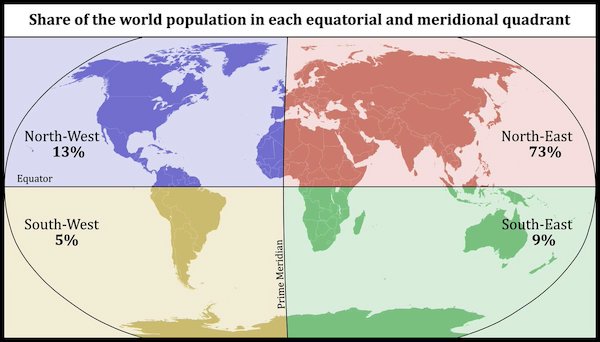

Language
https://twitter.com/i/status/1661404186989264899

Coconut Octopus
https://twitter.com/i/status/1661731592254160898

Fish
https://twitter.com/i/status/1661872894207574016

Humpback
https://twitter.com/i/status/1661682803648479237


Support the Automatic Earth in virustime with Paypal, Bitcoin and Patreon.









